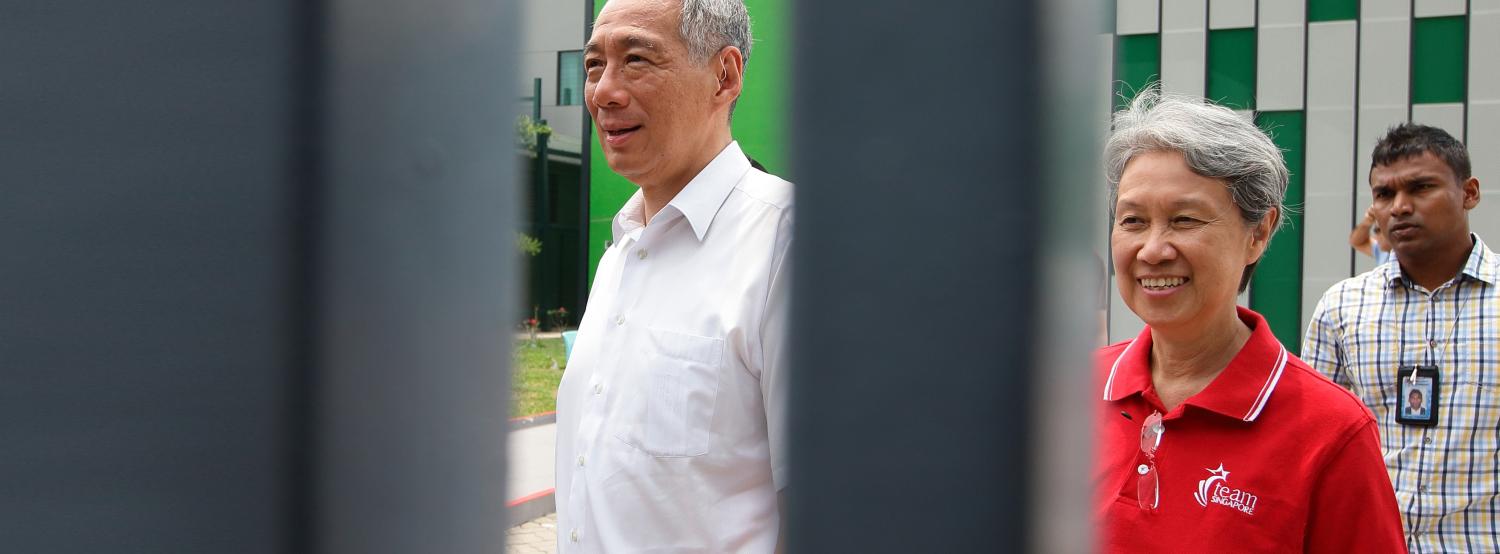On 15 April 2010, Singapore Prime Minister Lee Hsien Loong was interviewed by Charlie Rose on American national television and declared without reservation that if anyone suggested that Singapore has a dynastic government – if there was any hint of nepotism – then he would sue them.
That was then. Seven years and two months later, on 14 June 2017, his own brother and sister (Lee Hsien Yang and Lee Wei Ling) accused him of exactly that. He has not sued them, but his brother has said he will flee the country in fear of unspecified repercussions from his conflict with his brother. They accuse him not only of having dynastic ambitions for his son, Li Hongyi, but also of abusing his power as prime minister in his effort to ‘advance his personal agenda’ and of cowering the local press into timid silence.
The tipping point of the dispute is the last will and testament of the family patriarch, Lee Kuan Yew, who died on 23 March 2015. The specific point of dispute is disposal of the family home: Lee Kuan Yew wanted it bulldozed; Lee Hsien Loong wants it preserved and heritage listed. More to the point, he is accused of using the power of Cabinet and his Attorney-General (formerly his personal solicitor) to make it so. (Last week Cabinet Secretary Tan Kee Yong confirmed Cabinet had set up an internal ministerial committee to consider the options for the house but PM Lee had not been involved in the committee's discussions.) The PM's younger siblings have enlisted the power of Facebook and the foreign media (bypassing the Singapore press) to stop him.
It is rather amusing to see the Lees complaining about the abuse of power, the lack of ‘checks and balances to prevent the abuse of government’, and about the timidity of the Singapore press. They seem to be under the impression that this is a new development and that they are the first to notice.
Leaving aside the trivial and essentially personal elements of the intra-family squabble, there are several points of significance to draw from this episode that have a direct bearing on the contemporary governance of Singapore.
Perhaps the most startling and truly new development is the emergence of the importance of Lee Hsien Loong’s wife, Ho Ching. We already knew she was powerful as the CEO and director of Temasek Holdings, which is the holding company for the massive network of government-linked companies that dominate the Singapore economy. From the glimpse of the inside-family politics this episode has provided, it is now clear that she has power far beyond this role. There are 12 separate mentions of Ho Ching as a player in the public statement released by Lee Hsien Yang and Lee Wei Ling a week ago but the critical one is here:
Singapore has no such thing as the wife of the prime minister being ‘a first lady’. Lee Kuan Yew was Prime Minister from 1959 to 1990. During those many years, his wife (our mother) consistently avoided the limelight, remaining his stalwart supporter and advisor in private. She lived discreetly and set a high bar for the conduct of a prime minister’s wife. She would never instruct Permanent Secretaries or senior civil servants. The contrast between her and Ho Ching could not be more stark. While Ho Ching holds no elected or official position in government, her influence is pervasive and extends well beyond her job purview [as the long-time CEO and Director of Temasek Holdings, one of Singapore’s two sovereign wealth funds].
We still have no substantive basis to judge how far her power extends either in government per se or over her husband, but from now on, people will assume her power is ubiquitous.
The second significant revelation is the first airing by anyone in the ruling elite of the political ambitions of Li Hongyi, Lee Hsien Loong’s and Ho Ching’s son. His ambition had been well known for many years, and it was fairly obvious to anyone who followed the Lee family closely that he had been busy building a CV that would provide him entry to politics, but barely a whisper of this had been translated into print. Certainly no journalist had gone near the story and even foreign academics like myself have been circumspect. Li Hongyi has denied any such ambition (well he would, wouldn’t he?) but now the story is out, and it is out in a way that cannot do anything but hurt his ambitions.
The third major consequence is the continued degradation of the Lee Hsien Loong brand and, by consequence, the Lee family brand. Lee Hsien Loong has never been as revered as his father and the events of the last week are likely to have further damaged him. It would be different if his period as prime minister had been a litany of successes and achievements, but it has been far from a success. During the 13 years that Lee Hsien Loong has been prime minister, government in Singapore has been unambiguously ordinary. There have been large anti-government rallies, the worse election result for the government since independence, and a series of spectacular administrative failures. He famously saved the 2011 General Elections for the government by apologising for all the things the government had done wrong. This is definitely not the way to enhance a brand nor the way to build a dynasty. It is not even a good way to run a country.
